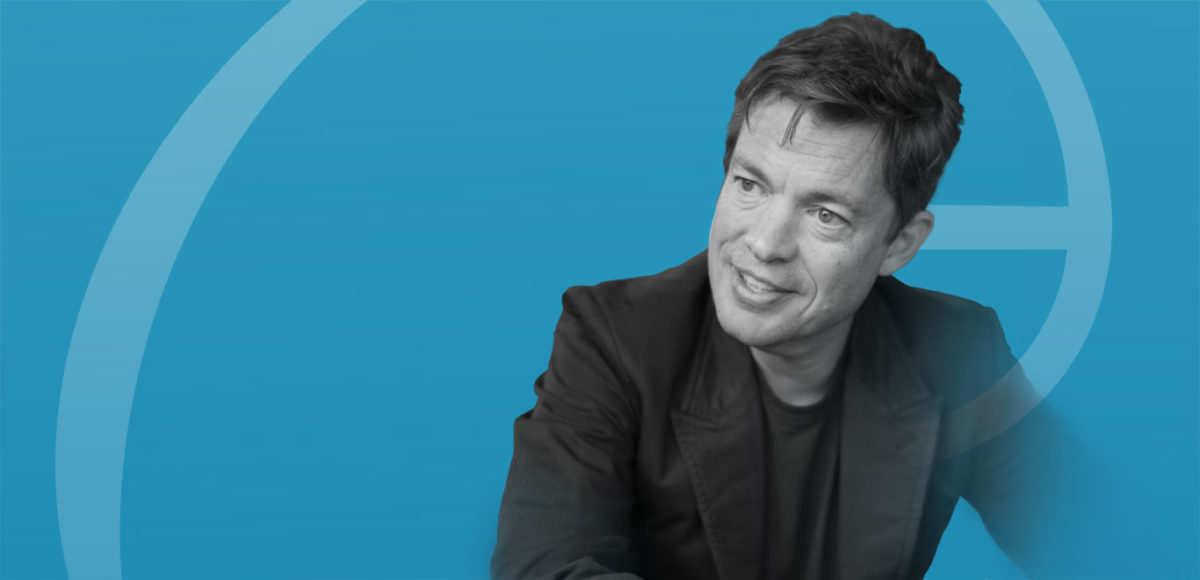Interview with Nicolas Berggruen: philanthropist, investor, and founder of the Berggruen Institute
Alexander Görlach: The Berggruen Institute is invested in finding the best, brightest ideas for the future. In your opinion, which ideas do we lack the most?
Nicolas Berggruen: We really need new paradigms. We’ve had forty years of extraordinary global, technological progress. We had globalization. We had multiculturalism. All of these benefited, on average, the whole planet, but it has been at a pace that is so fast. That led to a tremendous amount of uncertainty within people. Now democracies are turned upside down, its traditional players, like political parties or traditional media, have been disintegrated. That’s why we have to rethink how democracies function. Capitalism has conquered the world. It’s created enormous wealth and lifted people out of poverty, but inequality has risen. You have to rethink capitalism. Globalization is in reverse. Geopolitics is another area which we have to rethink; not necessarily question, but rethink. And then, let’s talk about technology. It’s really changing the nature of who we are as humans. And now, for the first time, we can create a new or different human, thanks to gene editing and AI. Who do we want to be?
Alexander Görlach: You personally started this quest by taking tutoring in philosophy. Have we excluded this discipline from understanding the consequences of technology in regard to how it may change human behavior? Do we not need a more holistic view of the world in order to assess and then solve the problems at hand?
Nicolas Berggruen: I think you are correct about needing a holistic view. Looking at things so fundamental as something that will change the nature of humanity in terms of academic disciplines is too narrow of an approach. The same is true for culture.
I think that you can’t look at things necessarily just in the one-dimensional Western framework. You have to go beyond. You know, if you think about the history of civilizations, the biggest moves and changes were made by people who were not necessarily mainstream. This is why it’s hard to predict who is going to be presenting the most influential and groundbreaking idea.
Alexander Görlach: Your argument on the multi-cultural, multi-disciplinary approach is definitely valid. Yet things do not get easier by doing so. For instance, in terms of advancements in AI or in medicine, there may be different underlying cultural and religious patterns in different countries. So it sounds great to have a global agora or marketplace where we discuss our different perspectives in order to have a breakthrough. But, unfortunately, that is not how the world works, right?
Nicolas Berggruen: In theory, you could put everybody together and have a super symposium with all of the greatest thinkers from around the world. It does sound good, but it is unlikely.
So you have to do it step by step and start bringing people together. They may come up with just a single breakthrough but, regardless, you have to give people time and space to think. What does this mean? It means you have to take chances and some risks.
One way or another we will change the nature of the human race. You can say that it is ourselves doing it, or you can say that it is part of something bigger and inevitable.
Alexander Görlach: What about a rather heretical thought like, “the change and it’s pace, it is just too big for us”? See for example technology pundits like Elon Musk who start expressing a rather pessimistic point of view and drawing a rather bleak outlook for the future. How do we balance risk and opportunity?
Nicolas Berggruen: It is always “too big” for us, but it is also necessary that we engage regardless. For centuries we’ve had doomsday naysayers, prophets, religions, and people coming up with scenarios about the world ending. Well, it didn’t happen.
Maybe one day; maybe one day the human race will indeed not survive. There’s always that chance. But that doesn’t mean you give up. You can’t give up. It is true that sometimes our problems look incredibly powerful and threatening. But humans today are confronting even human-made issues, like climate change. Some things like gene editing might be too irresistible to avoid. It is powerful, but it will have a price. One way or another we will change the nature of the human race. You can say that it is ourselves doing it, or you can say that it is part of something bigger and inevitable.
The modern self-aware human species as we know is not that old. Compared to the age of the universe, it is nothing. So, whatever changes we make for our species compared to our lifespan is dramatic. We only know what we know today, but in the context of evolution, it is such a short time. By definition of evolution, we have to make changes. What are the chances of the human race surviving in the long run? We could certainly progress or morph into something different; we have no choice.
Alexander Görlach: Others who have come up with a similar assessment may conclude they should rather direct their philanthropic endeavors towards research in technology, like the one-billion donation by Stephen Schwarzman to MIT in order to create an AI College. You, on the other hand, bet on philosophy and, amongst other things, reward one great philosophical idea every year with one million dollars, the Berggruen Philosophy Award. What makes you convinced that philosophy will solve our problems?
The human destiny is one of change and we have no choice but to participate in our change.
Nicolas Berggruen: Well, philosophy is thinking and it helps sponsor thinking. That’s only part of the equation. At the Berggruen Institute, our work is much broader. We are spending the equivalent of hundreds of millions on these big questions by engaging people from across all disciplines, including scientists, students, economists, sociologists, artists, and philosophers.
Alexander Görlach: So here we have the holistic view and its integration again.
Nicolas Berggruen: Yes, and in the end, we won’t come up with just one harmonious idea that everyone agrees on. There will be fights and unpopular ideas, but at the end of the day, they are the most valuable. So even though we get thinkers and people to work together from different cultures and disciplines on purpose, we don’t come up with a beautiful answer that unites everyone. And it’s unlikely this will ever happen.
Alexander Görlach: Is the future bleak or bright?
Nicolas Berggruen: Let’s say this: the future is the future. It is neither bleak or bright. If we invest in it as humans, it will be brighter in the sense that we will have more influence and agency over our future. That doesn’t necessarily mean that it will be brighter for sure.
The human destiny is one of change and we have no choice but to participate in our change. Will it be for the best? Who knows. But we have no choice but to participate. We have no choice but to be optimistic.
Thank you very much!
You can follow Nicolas Berggruen on Twitter.

 | Technology, AI and ethics.
| Technology, AI and ethics.

